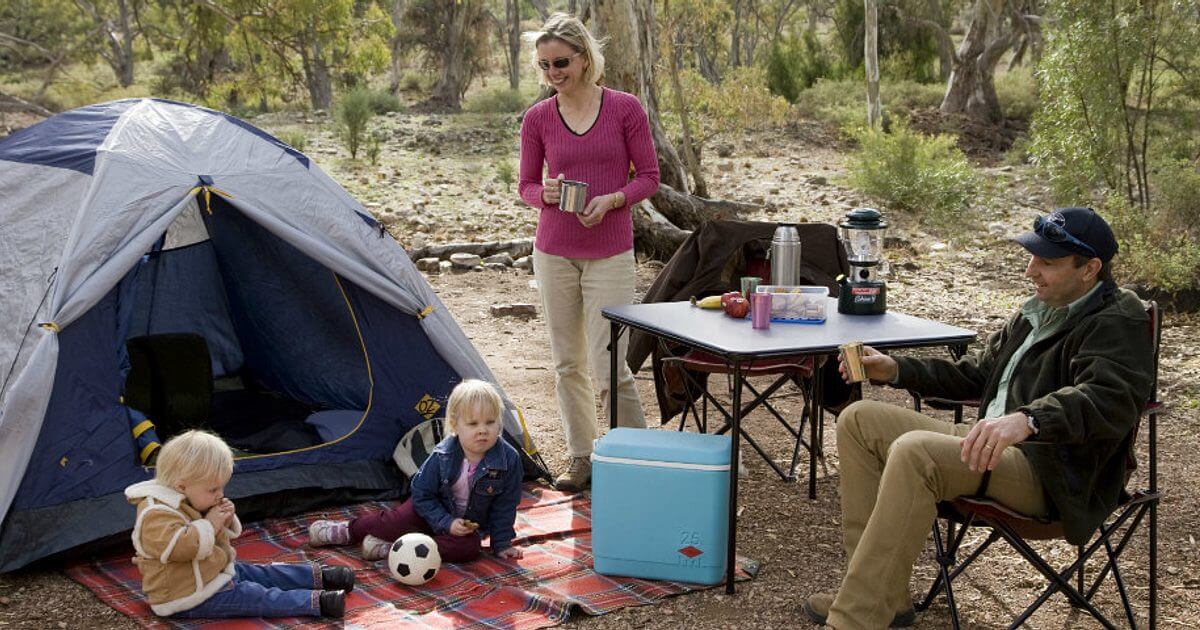Introduction
In an era where reconnecting with nature is more sought after than ever, eco-friendly camping has emerged as a crucial practice for outdoor enthusiasts. This approach to camping isn’t just about enjoying the serenity of the great outdoors; it’s a commitment to preserving these natural environments for future generations. As camping continues to surge in popularity, the responsibility to adopt sustainable practices becomes paramount. This guide is dedicated to showing how each of us can make a difference, ensuring that our adventures into the wild leave minimal footprints and support
the health and beauty of the natural world. Join us in exploring how to be green under the stars, where the thrill of adventure meets the ethos of conservation.
Understanding the Impact of Camping
While camping offers an escape into nature, traditional practices can inadvertently harm the very environments we seek to enjoy. The footprint left behind, from trampled vegetation to disrupted wildlife habitats, can have lasting effects on delicate ecosystems. Even small actions, like collecting firewood or leaving behind waste, can disrupt the natural balance.
Being a responsible camper means recognizing our role in these ecosystems. It involves more than just enjoying the scenery; it’s about actively protecting and preserving the natural habitats and wildlife we encounter. By camping conscientiously, we ensure that these wild spaces remain vibrant and thriving for years to come.
Sustainable Camping Gear
Embracing eco-friendly camping gear is a powerful step towards sustainable outdoor adventures. Opt for tents, sleeping bags, and cookware crafted from sustainable materials. These items not only minimize environmental impact but also align with the ethos of responsible camping.
Consider tents made from recycled materials, sleeping bags filled with ethically sourced down or eco-friendly synthetics, and cookware that’s durable and non-toxic. Investing in high-quality gear that withstands the test of time not only reduces waste but also ensures your camping experiences are environmentally conscious. This approach to gear selection is about making choices that benefit both the planet and your outdoor adventures.
Low-Impact Travel to Camping Sites
Traveling to your camping destination with a low environmental impact is as crucial as sustainable camping itself. Carpooling, is a great start; it not only reduces carbon emissions but also fosters a sense of community among fellow campers. Investing in a campervan can be a cost effective and efficient way to get your camping party around, as well as doubling as a place to stay. Another option if possible is to consider public transportation for an even smaller carbon footprint.
Another effective strategy is choosing camping sites closer to home. This not only cuts down travel emissions but also helps you discover hidden gems in your local area. Exploring less-traveled camping spots not only reduces overcrowding in popular sites but also allows you to experience nature in its quieter, undisturbed state. These practices contribute significantly to preserving the natural beauty and health of our camping environments.
Setting Up an Eco-Friendly Campsite
Creating an eco-friendly campsite is all about harmony with nature. Choose a spot where your tent will have minimal impact on the surrounding flora. Look for established sites or durable surfaces like sand or gravel to pitch your tent. This simple choice helps preserve the natural landscape and prevents damage to delicate vegetation.
When it comes to campfires, utilize existing fire rings or spots. This practice not only minimizes land scarring but also reduces the risk of wildfires. By being mindful of your campsite setup, you play a direct role in protecting the natural environment, ensuring it remains unspoiled for future campers and wildlife alike. Remember, the goal is to leave no trace, maintaining the pristine beauty of the outdoors while enjoying your camping experience.
Responsible Waste Management
Adhering to ‘Leave No Trace’ principles is crucial in responsible waste management while camping. This ethos is about ensuring that once you leave, there’s no evidence of your stay. Be diligent in packing out all your trash, including seemingly harmless items like food scraps or biodegradable materials. These can disrupt local wildlife and ecosystems.
Embrace recycling wherever possible and consider composting organic waste if facilities are available. If you’re camping in a remote area, plan ahead for how you’ll carry out your waste. Remember, every piece of trash you pack out plays a part in preserving the natural beauty of the camping site for others to enjoy.
Respecting Wildlife and Natural Habitats
When you’re out in the wild, remember you’re a guest in the home of countless wildlife species. Observing animals in their natural habitat can be a thrilling experience, but it’s vital to do so respectfully and safely. Always maintain a safe distance from wildlife – not only for your safety but also to avoid causing them stress or altering their natural behaviors.
Avoid the temptation to feed animals or attempt to attract their attention. Feeding wildlife can disrupt their diet and dependency patterns. Stick to designated trails to minimize your impact on their habitats. By observing these guidelines, you contribute to the preservation of these creatures and their homes, ensuring they continue to thrive for generations to come.
Conclusion
Being eco-friendly in the great outdoors boils down to mindfulness and responsibility. It’s about making conscious choices – from the gear you pack to how you interact with nature. Every action, no matter how small, from respecting wildlife to managing waste, contributes to a larger effort of environmental conservation. As campers, we each have a role to play in safeguarding our natural world. By embracing these eco-friendly practices, we ensure that the beauty and splendor of the outdoors can be enjoyed by future generations. Remember, when we protect nature, we’re also preserving the essence of camping itself.

